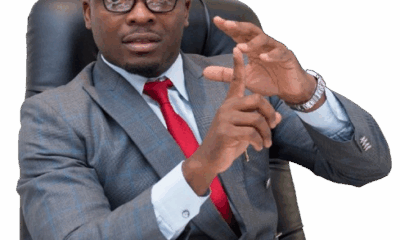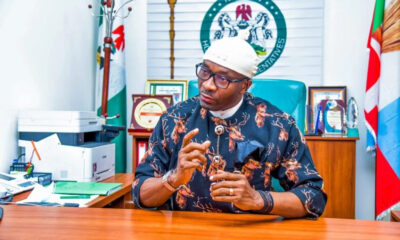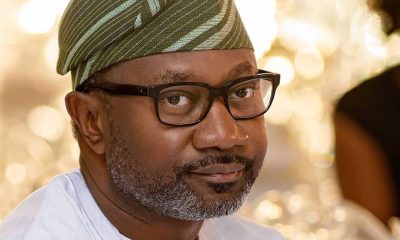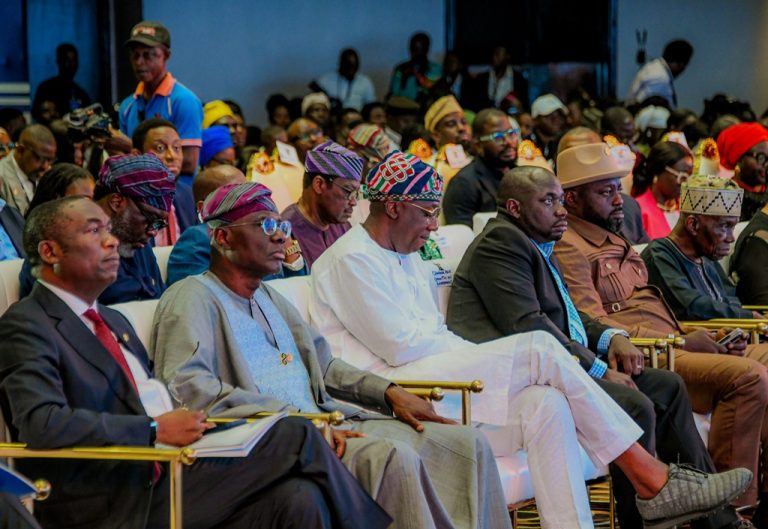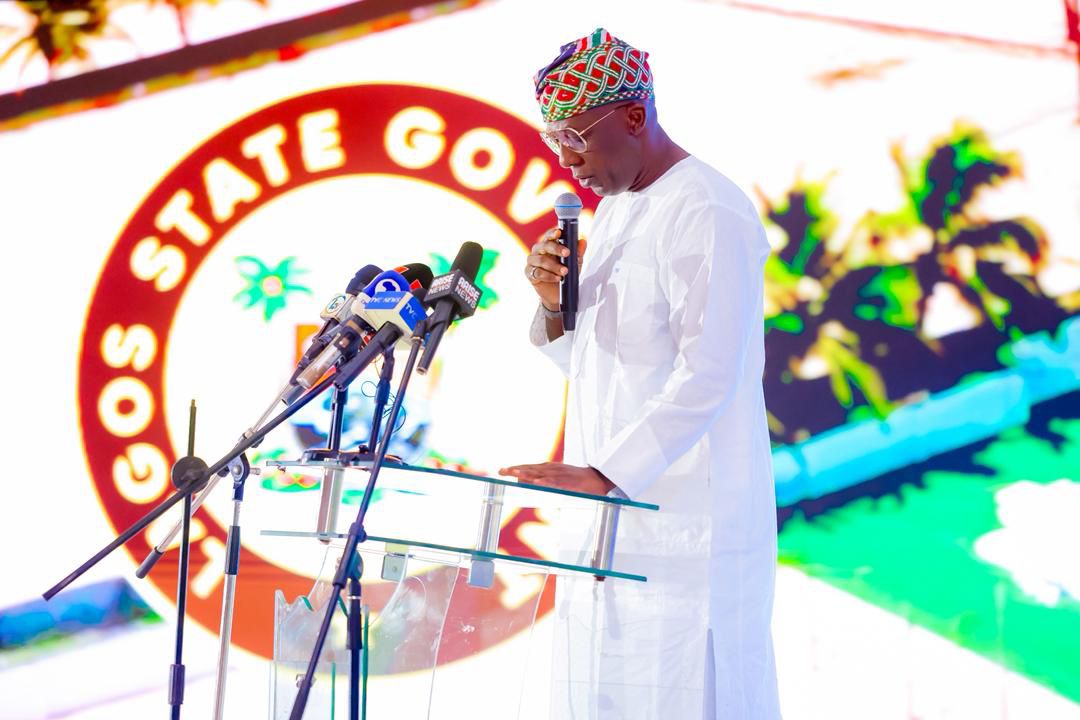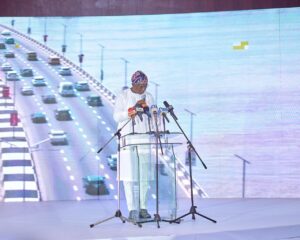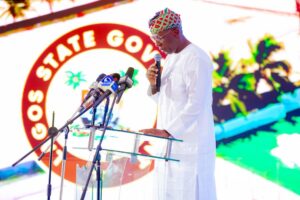Publisher of Ovation magazine and former presidential candidate, Dele Momodu, has revealed how the Peoples Democratic Party, PDP, abandoned its candidate, Ademola Adeleke in the last governorship election in Osun State.
He made this known in a statement on Saturday in which he also outlined the best strategy for the PDP if it desires to win the presidency in 2019.
Momodu further said no candidate from the core north can compete against, and defeat, President Muhammadu Buhari simply on the basis that he is from the core north.
The statement reads: “What transpired in the State of Osun, as my dear brother, the Governor, Ogbeni Rauf Aregbesola, loves to refer to our State, was not gubernatorial, but a prelude to the presidential election. The interest and resources galvanised for that election demonstrated that it was a civil war and not a civilised election.
“The election was seen and executed as a referendum on the tenure of President Muhammadu Buhari and its wobbly government.
“While the ruling party appeared determined or maybe ‘desperate’ is the appropriate word, to win, the main opposition party looked jazzed and disinterested.
“But for the merciful interventions of former Vice President, Alhaji Atiku Abubakar and the President of the Nigerian Senate, Dr Abubakar Bukola Saraki, the PDP candidate, Senator Nurudeen Ademola Adeleke, could as well have been a virtual orphan. It was that bad.
“What manner of opposition would sit at home, arms akimbo, after seeing how the President, Vice President, Governors, Ministers and party Chieftains all invaded, and flooded, Osun as if their lives depended on it?
“I fail to understand how PDP can parade over a dozen presidential aspirants yet only few of them are showing irrevocable commitment to serious party matters while the rest are only pursuing personal agenda.
“Adeleke was just lucky to be blessed with a family that had the means to fund his campaign and in particular a megastar, David Adeleke (aka Davido), who unleashed his monstrous talent on the campaign.
“The ways of politicians are certainly not the ways of ordinary mortals. I could not believe how they turned Osun into a theatre of war because of a few thousand votes. I thought that, by now, Nigeria had passed this disgraceful and embarrassing stage.
“I have no doubt that APC merely used the elections in Ekiti and Osun as dress rehearsals of what to expect in next year’s general elections. I don’t see the APC apparatchik agreeing to vacate power without a truculent fight.
“Many people, Nigerians and non-Nigerians have come to the incontrovertible conclusion that what we currently have is an army of occupation and we should accept our fate with equanimity.
“But no country can afford not to have a virile opposition. This is why it is sad and tragic that those who were in opposition only yesterday are perpetrating the same unfortunate acts we collectively rejected and dismissed not too long ago.
“The PDP that should fight back stoutly to give a good fight is already gasping for breath because of multiple ambitions of individuals who may choose to turncoat at the drop of a hat.
“From the multitude of PDP aspirants and even the cacophony of permutations about who can challenge Buhari to a duel, it is becoming clear, to discerning minds, that there are only two, possibly three serious challengers and no more. Of these three, two currently stand tall.
“One is old and the other is young. It seems patently obvious, from the recent shenanigans that we have seen that President Buhari and his people would do everything humanly possible to avoid confronting either of these two candidates at the polls next year.
“Moving on, let me say with every emphasis I can muster, no candidate from the core North can compete against, and defeat, Buhari simply on the basis that they come from the core North. It is practically impossible.
“The jejune argument that PDP should pick a candidate who can divide the core Northern votes is either a joke carried too far or a deliberate decision to hand power back to the incumbent on a platter of gold.
“What the PDP needs urgently is a candidate who can explode its votes in the entire South and the North Central. This does not necessarily mean such a candidate should come from these regions, but it would be ideal. A candidate with cross-over appeal from the North East and North West would also do well provided he does not believe that his place of origin means he should concentrate his effort in that region or adjunct region.
“PDP should forget the pipe dream of competing favourably against Buhari in the North East and North West. He has consistently won overwhelmingly in those two regions. However, if President Buhari can be restricted to those two zones while opposition locks down the other four zones of the country, then the prospects of the opposition PDP resoundingly beating the APC candidate becomes much brighter.
“70 percent of the electorate are under the age of 45. Opposition requires a candidate who can readily galvanise a multitude of first-time voters. Nigeria is long overdue for a candidate in the mould of Barack Obama, an energetic and cosmopolitan leader. Politics as a game of numbers must be approached meticulously.
“Buhari has stupendous State appurtenances and resources to deploy, his opponent must have access to the similar armoury or have sufficient wherewithal to match the substantial resources of State and not be a scavenger in search of morale, audacity and finance. I’m not sure about what the third force can produce. I have expressed this publicly and privately.
“I think the toughest opposition can still come from PDP if it can rescue itself from certain interests and manage to pick a kamikaze candidate who is not docile and who is ready to fight all the way with everything at his disposal.
“No meek or lily-livered gentleman can fight and conquer Buhari next year. The lesson to pick from Osun, while litigation processes are being cooked, is that the next Presidential election is not going to be the stuff of conventional warfare. A serious opposition must prepare for the use of ballistic and anti-ballistic missiles. This is the reality of what to expect.”

 BIG STORY5 days ago
BIG STORY5 days ago
 BIG STORY4 days ago
BIG STORY4 days ago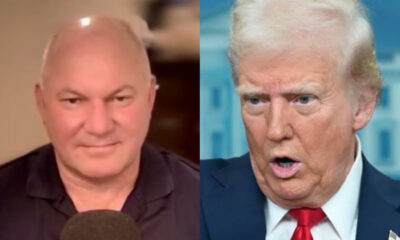
 BIG STORY5 days ago
BIG STORY5 days ago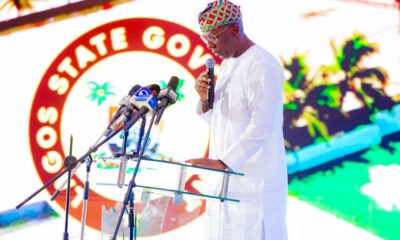
 BIG STORY12 hours ago
BIG STORY12 hours ago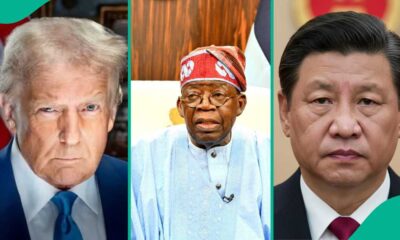
 BIG STORY4 days ago
BIG STORY4 days ago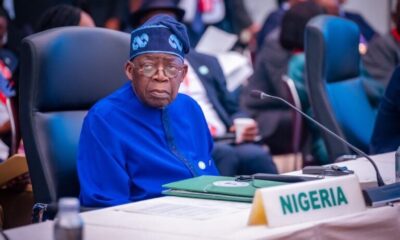
 BIG STORY3 days ago
BIG STORY3 days ago
 BIG STORY3 days ago
BIG STORY3 days ago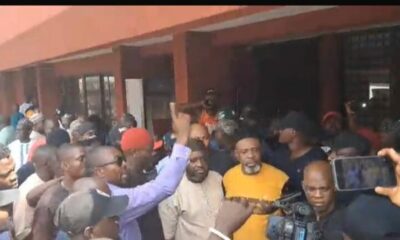
 BIG STORY5 days ago
BIG STORY5 days ago







